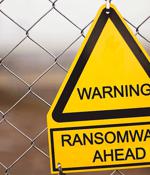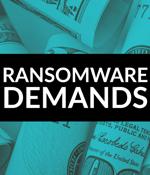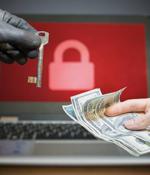Security News

October 11th 2021 Pacific City Bank discloses ransomware attack claimed by AvosLocker. The White House National Security Council facilitates virtual meetings this week with senior officials and ministers from more than 30 countries in a virtual international counter-ransomware event to rally allies in the fight against the ransomware threat.

Victims of ransomware attacks in the United States may soon have to report any payments to hackers within 48 hours, according to a new legislation proposal titled the 'Ransom Disclosure Act'. Require ransomware victims to disclose information about ransom payments no later than 48 hours after the date of payment, including the amount of ransom demanded and paid, the type of currency used for payment of the ransom, and any known information about the entity demanding the ransom;.

Ransomware, showing three major detection spikes during T2, saw the largest ransom demands to date. The attack shutting down the operations of Colonial Pipeline - the largest pipeline company in the US - and the supply-chain attack leveraging a vulnerability in the Kaseya VSA IT management software, sent shockwaves that were felt far beyond the cybersecurity industry.

Security intelligence vendor Flashpoint claims to have found forum comments from customers of the REvil ransomware-as-a-service gang, and they're not happy. The gang's malware may contain backdoors that REvil uses to restore encrypted files itself.

A ransomware group believed to be the latest incarnation of the infamous DarkSide cybergang is being blamed for taking out a farmers' cooperative online network, with extortionists demanding $5.9 million in ransom. The group BlackMatter is credited for the attack on an Iowa collective of farmers called NEW Cooperative.

Ransomware attacks have accelerated at a feverish pace in the last year leaving small businesses, large enterprises, and government agencies scrambling to protect the lifeblood of their organizations - their data. Well, first you need to have a plan - for how to react and recover in the event of a ransomware attack.

Two UK VoIP operators have had their services disrupted over the last couple of days by ongoing, aggressive DDoS attacks. South Coast-based Voip Unlimited has confirmed it has been slapped with a "Colossal ransom demand" after being hit by a sustained and large-scale DDoS attack it believes originated from the Russian cybercriminal gang REvil.

"Many schools cannot operate without their computer systems, and some schools have had to cancel classes due to ransomware attacks," said Paul Bischoff, privacy advocate at Comparitech. "Resolving a ransomware attack without paying the ransom takes about two weeks on average, which is far too long for kids to be out of school. So ransomware creates urgency that makes schools more likely to pay up."

So what are these unexpected places besides supply chain attacks? Kaseya, a lot of people would argue that's not a supply chain attack.

Ransom demands have grown substantially over the past year, smaller companies are increasingly targeted, and cyber criminals continue to take advantage of dislocations in how we work, according to...